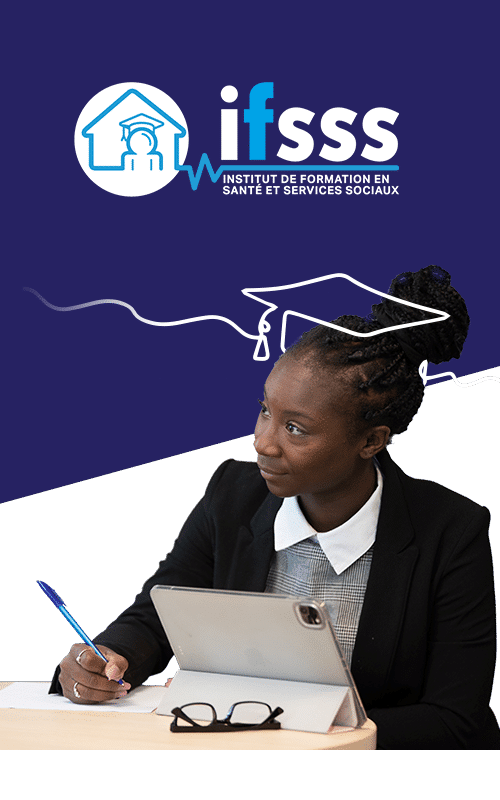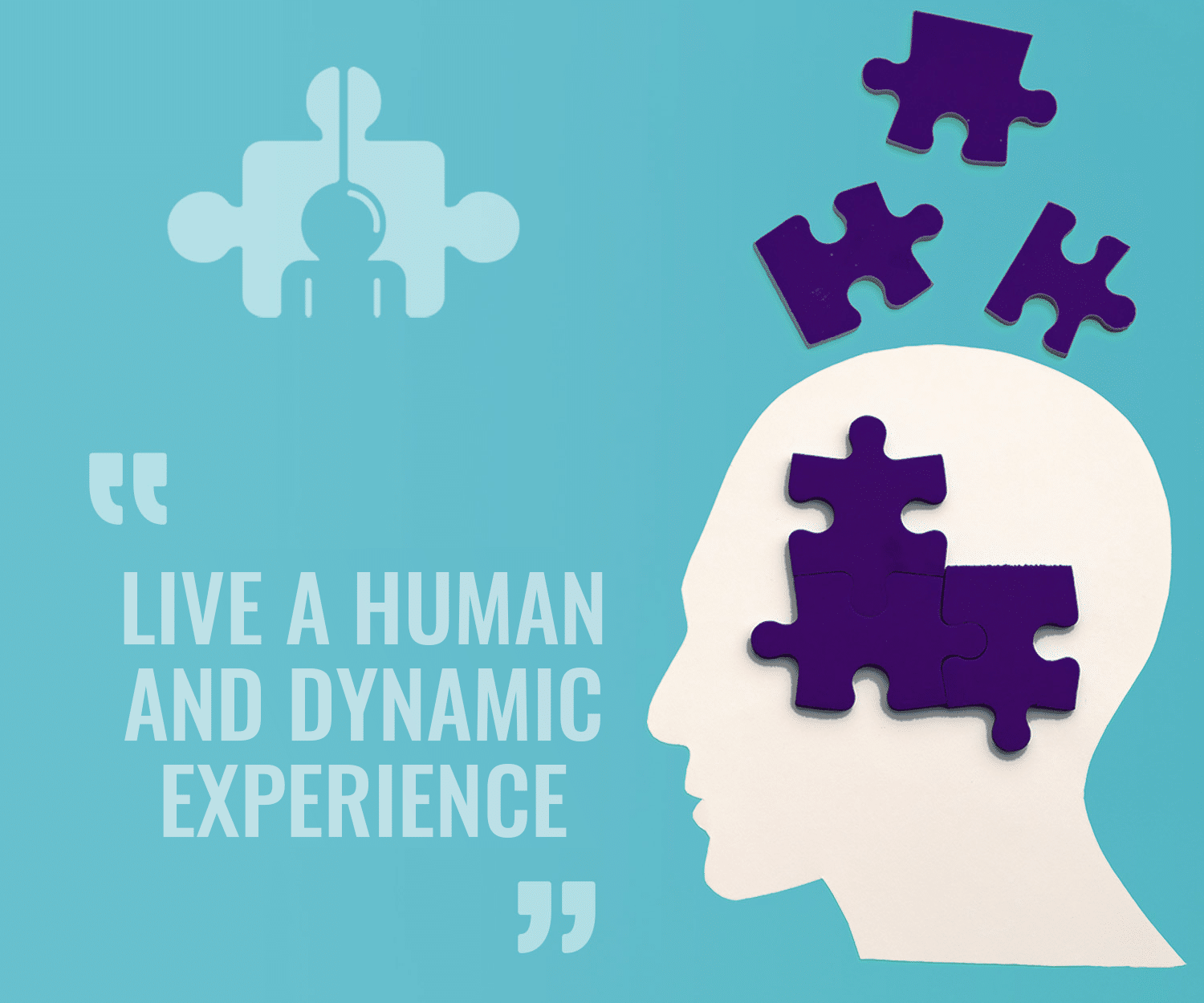Continuing EDUCATION
Working with us means building your professional skills through ongoing training that meets your real needs.
Solu T.E.S has always put in the forefront a diversified offer of training solutions to all its employees, and are dedicated to promoting professional and human development. We want to provide our interveners with access to relevant intervention tools on a daily basis using evidence-based practices.
All the training for which employees are entitled to, allows them to acquire the support strategies that have proven effective in the field.
Choosing SOLUT.E.S. means identifying yourself as an individual and making a difference!
Training offered by external collaborators:
Your Title Goes Here
Your content goes here. Edit or remove this text inline or in the module Content settings. You can also style every aspect of this content in the module Design settings and even apply custom CSS to this text in the module Advanced settings.
Cognitive Behavioral Therapy (CBT) - 12 hours
The training allows the INTERVENER to: maintain a professional attitude during the intervention; develop and/or improve a certain number of tools, both theoretical and practical; understand the meaning of aggressive behaviours, and put forth procedures as soon as they occur; develop a feeling of confidence and personal control; develop physical and psychological safety; remain sensitive to the professional stress that may generate, and learn how to best reduce and manage it.
The training allows the USER to feel and be considered with regards to the resolution of his/her difficulties; to feel respected and to be respected; to increase his/her behaviorial repertoire to feel and be safe and protected; to meet his/her needs in a socially acceptable way.
The training allows the WORKPLACE to become proactive in dealing with aggressive behaviour; to establish an effective mode of communication between the various interveners (use of the same language); to ensure the safety and protection of staff and others; to reduce accidents by developing a safe environment; to remain consistent with the philosophy and code of ethics within the institution or living environment; to improve the clinical practice of the crisis situation, assess the patient’s status and to allow for the implementation of appropriate preventive measures.
MCB (Managing Challenging Behavior) – 12 hours
The training offered allows interveners to take control of risky situations in order to pursue intervention methods, or intensive care plans beyond the limits of pacification techniques in effect in certain environments.
The program is tailored within the field of multi intervention environments.
From: MISSION – CCDMA
NCI (Nonviolent Crisis Intervention) - 13 hours
The CPI training program is a safe, non-harmful behavior management system designed to help professionals in any environment provide the best possible care, wellness, safety and security of inidividuals with a range of crisis behaviors.
The objective of the program is to provide participants with the knowledge and necessary skills to recognize and manage crisis behaviours that may arise in the workplace.
Basic training offered by the clinical team:
Your Title Goes Here
Your content goes here. Edit or remove this text inline or in the module Content settings. You can also style every aspect of this content in the module Design settings and even apply custom CSS to this text in the module Advanced settings.
Demystifying syndromes: Intellectual disability and autism spectrum disorder (3.5 hours)
Objectives:
- Have a common definition of an intellectual disability (ID) and autism spectrum disorder (ASD).
- Understand how people with ID or ASD function.
- Distinguish effective intervention strategies in everyday life.
- Learn about various effective interventions.
Clients: Myths, Realities and Interventions (3.5 hours)
Objectives:
- Have a common definition of an intellectual disability (ID) and autism spectrum disorder (ASD).
- Provide an overview of the different clients served.
- Have a common understanding of the diagnoses.
- Learn the approaches to use to connect with the main clients.
Health and Social Services (3.5 hours)
Objectives:
- Understanding the concepts associated with caring.
- Learn to be kind to yourself and to others.
- Explore the different caring techniques that are available.
- Identify caring interventions to implement on a daily basis.
**This training also provides a good understanding of the needs of people who lack autonomy, in geriatrics and in the healthcare environment provided by our staff.
Oppositional Defiant Disorder (ODD): Understanding & Intervening (3.5 hours)
- Have a shared understanding of normative development VS behavioural disorders.
- Understand what the opposition is and its functions.
- To address effective intervention strategies.
- Learn about the clinical interventions to be implemented.
Additional information
It is also important to know that we offer access to a formative assessment to the selected candidates during the interview stage.
This capsule is a prerequisite to perform the work of anIntervention Agent onsite, and provides the basic knowledge of the position. This ensures that all our staff is well-equipped.
Content
- Work in an agency setting
- Adapting to different environments
- Description of Intervention Agent’s role
- Legal context, code of ethics, and confidentiality
- The tasks of the Intervention Agent
- Know the different assignment settings
- Intervening on a daily basis
- Preparation of daily reports
- Work in a multi and interdisciplinary team
- Psychological distance and professionalism
Partner with theInstitut de Formation en Santé et Services Sociaux.
Thanks to this new partnership with theInstitut de formation en santé et services sociaux (IFSSS), an accrediated continuing education organzation, all active employees will have access toa training creditfor every 480 hours worked.
Our clinical advisors can support you in your choice of training according to your skills.
In addition, all employees will be able to use their training credit on all training activities offered on the regular calendar or on Moodle (an online learning platform TBA).
This means that each full-time employee would be enitled to one credit approximately every 3 months..
IFSSS stands out for the quality and diversity of its global and specific training in the field of health and social services, allowing to meet the needs of continuing education. Their experienced trainers allow participants, of all levels, to have access to exclusive content regarding the different clients and preferred intervention strategies. *The trainings offered by IFSSS are of high quality in accordance with the access to continuing education units, and the school of learning is accredited by SOFEDUC.
SOLUT.E.S.is committed to helping interveners maintain the knowledge and skills required to work effectively in order to offer care and services adapted to the needs of the user. Therefore, it is possible for our team to give you access to a greater diversity of mandates, depending on the targeted regions.


